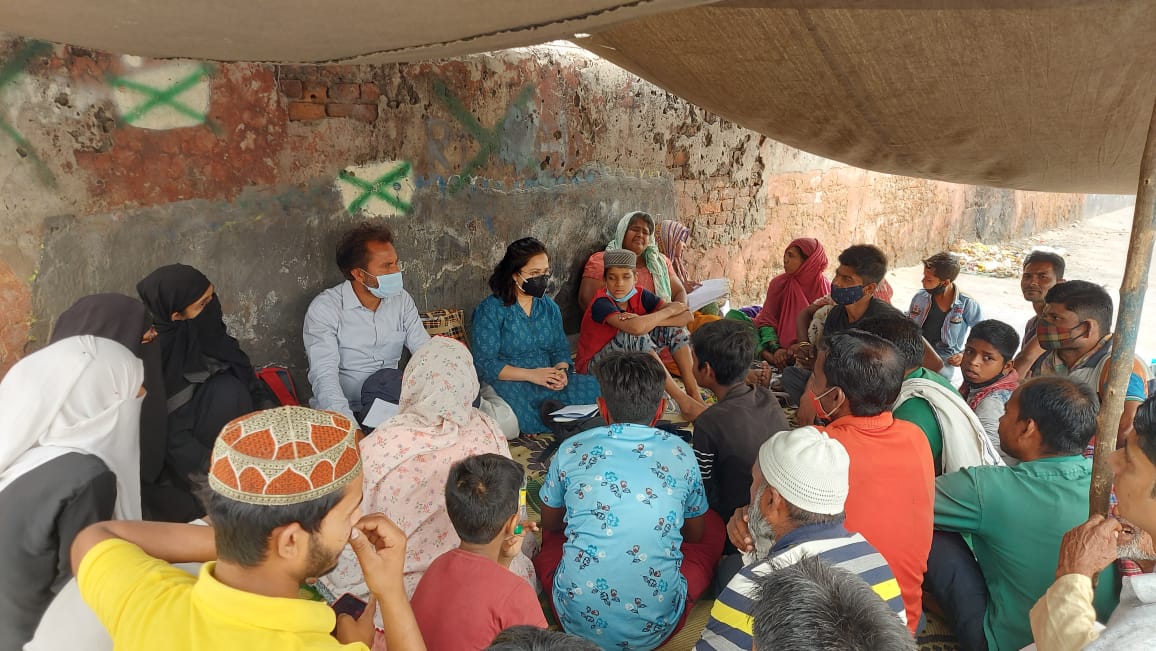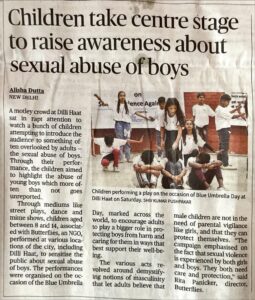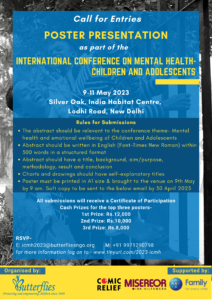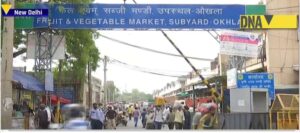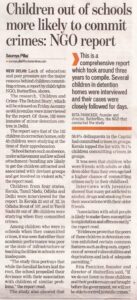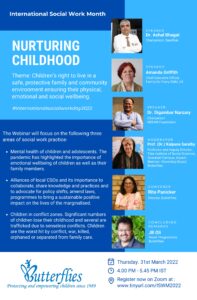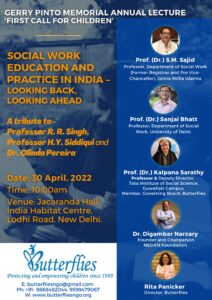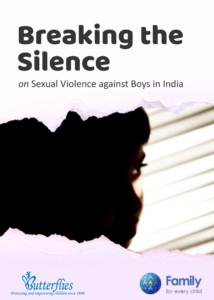Guidelines for Scholarship Programme
Introduction
Butterflies is committed to supporting children and adolescents from street situation and marginalized communities, often grappling with intergenerational poverty, illiteracy, and limited opportunities. They belong to families who mostly engage in low-income occupations, such as daily wage labour and street vending, due to their lack of formal education and skills. Approximately 71% of families within the target population are unskilled labourers or street vendors, earning an average monthly income of less than INR 10,000. There are also significant numbers of children and adolescents who are raised by single women (mothers) due to the absence or separation of their husbands (fathers). This financial situation limits their ability to save money for their children’s higher education and professional training after completing school education.
Butterflies offers educational scholarships to deserving students, enabling them to pursue higher education and vocational training. By providing financial assistance to deserving students, Butterflies removes one of the major barriers to pursue their academic goals and gain the skills and knowledge necessary to break intergenerational poverty and illiteracy. The scholarship scheme has successfully supported several adolescents particularly girls who are often now allowed to pursue higher education due to religious and cultural beliefs and practices. The organisation will continue to provide scholarships to deserving students who demonstrate academic excellence and a strong determination to seek their goals in life to improve their circumstances.
These guidelines have been developed to formalise the scholarship as a programme and have standard procedures in place.
1. Type of Scholarship
There will be three categories of students who will be provided scholarships
1) Students aspiring for joining higher academic education from universities
2) Students desiring to join vocational courses in technical institutes like Delhi ITI or public institutions running various professional and vocational courses.
3) The working children who cannot attend regular formal schools and are interested in continuing education through National Institution of Open Schooling.
2. Eligibility & Criteria
The scholarship will be provided to the student who meet the following eligibility criteria:
1) Students (girls and boys) in Butterflies programme. The student must have association with Butterflies for minimum for 3 years.
2) Academic performance track records of last 3 years of the student in Butterflies and formal schools should show steady progress.
3) The student must participate in CDK, CHCS, Media, Bal Sabha regularly.
4) The student has consistently demonstrated their helpful nature and sensitivity to others.
5) The average annual income of the parents for the last 3 years should be below 2 lakhs.
6) If the family has health crisis, emergency and also disability affecting financial situation of the family.
7) Single parents (priority) if there is a limitation of financial resources.
3. Application Process
1) The provision of scholarship and criteria will be informed to children during the Bal Sabhas by the head of Education programme in the month of April annually.
2) The student will write an application to the programme officer in advance, when they move to the 12th grades. This will make them more focussed towards their study to achieve good marks and make them eligible to clear the entrance test and secure their seats for a desired course.
3) After receiving the application, the Programme Officers will discuss it with the parents and assess the financial condition of the family, present income of the household. They will also explain the criteria for scholarship and inform the contribution of the family in the total amount. This will make parents aware and responsible as it is their responsibility to provide best care and education to their children for their growth and development.
4) The programme officer analyses the attendance and learning progress of student in tests, formal school, participation in the activities by the student in last three years.
5) The programme officer based on the student’s application and his/her performances records as cited in the above paragraph will write a recommendation letter and submit to the Head of Street Education programme.
6) The head of Street Education programme will evaluate the application and verify the facts presented in the application. After verification the head of street education will forward the application to the Head of Programmes.
7) The Head of Programmes will place it for approval to the Senior Management Team.
8) After approval of the SMT, the amount will be released and transferred by the Finance team in the name of the student or to the parents or to the institution whichever is applicable.
4. Type of Financial Support
1) Full Scholarship or Partial Scholarship: The scholarship may be full or partial according to the financial situation of the student’s household as laid down in para 2 above. The concerned Programme Officer while recommending for the scholarship will justify the amount with relevant information such as family income and other socio-economic factors, such as seasonal work, long term illness in the family or any other factor that impinges on the family’s inability to pay part of the tuition fees may be considered for full scholarship.
2) One time or Renewable: There will be renewable scholarships (yearly college fees) and one-time scholarships for NIOS and professional courses. However, the application for renewal of scholarship will be submitted by the student and the same procedures will be followed. This will encourage the family to save money and prioritise.
5. Monitoring, Evaluation and Follow-up
1) The concerned Programme Officers will collect progress data, like their attendance in college or institutions, their performances academic results, performances in practicums.
2) The concerned Programme Officers will take quarterly feedback from the students and if required visit and meet with the authorities of the institutions where students are enrolled.
3) The follow up report of the progress will be done jointly by the Senior Programme Officer (Education) and Monitoring and Evaluation officer to assess the progress of their educational or training and submitted to the Head of Education Programme.
4) Head of Education Programme will finalize and share the report with the Head of Programmes.
6. Continued Mentorship and Support
1) The students who graduate from our program and join the higher education, technical courses will be mentored for three years till the age of 21 years by organising mentoring sessions.
2) The concerned Program Officers will provide individual mentoring support to the students for their academic learning, information, adjustment to college life and career development which will be documented and shared.
3) The Senior Programme Officer (Education) will be responsible for planning, coordination and implementation of the mentoring programme. The other programme team will contribute to designing, planning and executing the sessions.
7. Records and Documentation
1) Profile and data of students including the financial support will be maintained by the Monitoring and Evaluation Officer and reported in review reports as a component.
2) Success stories of the students provided scholarship will be documented and shared by the Programme Officers.
3) These stories will be finalized with the support, from senior programme team members (Head of Programme, Director or anyone expert in creative writing) by giving their inputs for improvements to the narratives.
4) Head of Education will mention it in annual as well as donor reports.
These Guidelines have been issued with the approval of the Director.
Date: 03 June 2025

